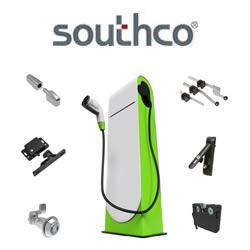Overlap in PV Solar Approval Processes Can Be Reduced
The Interstate Renewable Energy Council, Inc. (IREC) explores the many processes often involved in PV system approval, how these processes interact, and recommendations for reform.
(October 8, 2013) - To successfully develop a rooftop solar photovoltaic (PV) project, installers must navigate multiple approval processes. Only then can the system be connected to the grid and operational. In a paper published today, the Interstate Renewable Energy Council, Inc. (IREC) explores the many processes often involved in PV system approval, how these processes interact, and recommendations for reform.
"Minimizing Overlap in PV System Approval Processes: Case Studies and Analysis" examines in great detail the overlap and synchronization of the many approval processes involved, in addition to their individual steps, and offers possible solutions on how to make them more efficient. In the paper, IREC also provides four case studies, which outline the approval paths for PV systems in four cities in the United States.
"By taking a close look at these four specific markets, we were able to gain a full understanding of the many approvals it takes to install a rooftop PV system in the United States, and identify those areas where there may be an opportunity to reduce overlap and increase efficiency," says lead author Sky Stanfield, part of a team who represents IREC in regulatory matters. "Such changes may be key to continued advancements in reducing soft costs for rooftop solar PV."
The approval process typically includes obtaining an interconnection agreement from the utility and securing a building/electrical permit from the local municipality. In some cases, it also includes obtaining historic district approval, enrolling in a net metering program, and applying for and obtaining state or local rebates and incentives.
To get a complete look at how the approval processes work and interact with each other in various parts of the United States, the paper presents case studies covering the following markets: Broward County, Florida; Raleigh, North Carolina; Maui County, Hawaii; and White Plains, New York. Each case study analyzes the process of obtaining approval for grid-tied residential rooftop solar systems with capacities of 10 kilowatts (kW) or less.
Through these case studies, and additional conversations with installers and approving authorities in other markets, the paper highlights the manner in which these processes are interrelated, and includes multiple perspectives.
"From this research, we identify how processes across the country could be better sequenced internally and externally to reduce redundancy and improve efficiency for both developers and authorities, while still achieving safe and reliable rooftop solar PV systems," adds Stanfield.
The case studies focus on the most common route for solar installers in each market by assuming the customer will use the existing net-metering program, apply for available rebates and tax incentives, use the permitting process in the jurisdiction specified, and seek to interconnect with the utility serving that jurisdiction.
"The paper identifies just some of the opportunities available for increasing efficiency," says IREC President and CEO Jane Weissman. "Generally speaking, increasing communication and finding ways of sharing responsibility can reduce the drain on each entity's resources while also boosting economic activity and creating a more ecologically sustainable energy future for our communities," says Weissman.
About IREC
IREC believes clean energy is critical to achieving a sustainable and economically strong future. To pave this clean energy path, IREC works to expand consumer access to clean energy; generates information and objective analysis grounded in best practices and standards; and leads programs to build a quality clean energy workforce, including a unique credentialing program for training programs and instructors. Since 1982, IREC's programs and policies have benefitted energy consumers, policymakers, utilities and the clean energy industry.
Featured Product

